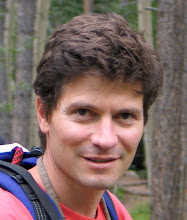I'm way too removed from the pop culture scene that I only heard yesterday about Nick Hogan's car crash over a year ago and the Hulk family shenanigans surrounding it. In the leaked phone call between the Hulk and Nick while he was in prison, the Hulk says, "Well, I don't know what kind of person John was or what he did to get himself into this situation. I know he was pretty aggressive. He used to yell at people and he used to do stuff. But for some reason, man, God laid some heavy sh*t on that kid, man, I don't know what he was into...."
The Hulk says on Larry King Live that he told his son this to reach out to his son and give him solace -- blaming the victim, instead of having his son take on the guilt of having done something perhaps even worse than actually kill his best friend. Obviously, the worst sh*t that John Graziano was into was hanging with the Hogans.
But let's say regardless of the pressure or motives behind this statement that it exemplifies part of Hulk's theology. Assuming a God, is there any way to prove Hulk wrong? Many Christians would say, "That is not my God." But when theology involves a personal God, and encourages subjective interpretations that can not be discredited or disproved, what happens to absolute truth, which is supposed to come with religion?
As an atheist, I am asked by Christians "on what basis" can I substantiate my morality, ideology, and my will to live. The implication is that we all need God's grace to get it right. The golden rule is obviously too far fetched for me to exhibit on my own without Jesus tugging on my heart or to remember the words of my parents in how to share, or to modify my behavior when a kid said, "Ouch! You're not playing nice!" My basis is my interpretation of how the world operates and how I ought and want to behave given that interpretation. It's an ongoing thing. I study nature and work together with others using language and behavior to devise collective norms and laws. So, yes, it's relative, just like the basis of one's Christianity.
I find the premise that religion offers absolute/universal truth alarming because it never actually delivers it. See here for a fun read. Toward the end of the article, when it addresses evidence of absolute truth, it makes the following claims:
The first evidence for the existence of absolute truth is seen in our conscience. Our conscience tells us that the world should be a “certain way,” that some things are “right” and some are “wrong.”
The second evidence for the existence of absolute truth is seen in science. Science is simply the pursuit of knowledge. It is the study of what we know and the quest to know more. Therefore, all scientific study must by necessity be founded upon the belief that there are objective realities that exist in the world. Without absolutes, what would there be to scientifically study?
The third evidence for the existence of absolute truth / universal truth is the existence of religion. All the religions of the world are an attempt to give meaning and definition to life. They are born out of the fact that mankind desires something more than simply existing.
Points one is an example of relativism.
The first problem with point two is that objective realities may themselves be part of dynamic, random processes. Furthermore, much of science is not proven, but built on theory, which might eventually be shown to be incorrect. The second problem with employing #2, from a theological perspective, is that this does not differ from some forms of deism and materialism.
Point three shows, as with Hulk's theology, that the strivings for finding meaning in various life events is a natural human condition, but because everyone has their own theology, the splinters of various belief indicate that the only absolute is subjectivity.




